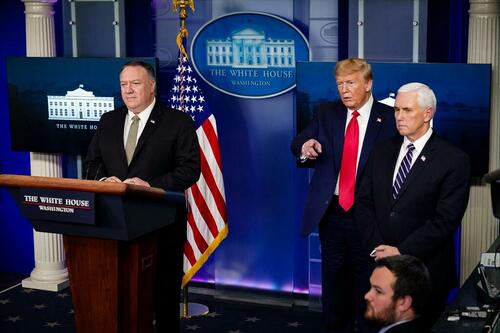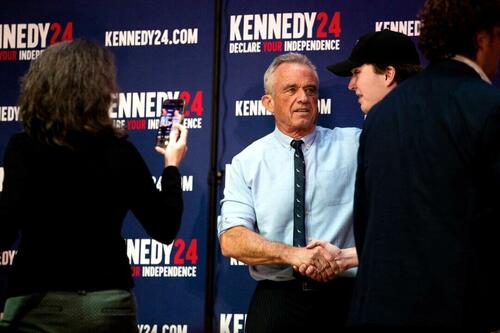Government
Americans can’t pay rent, much less afford a home
Americans can’t pay rent, much less afford a home


Americans were drowning in debt even before the COVID-19 pandemic hit the country and stalled the economy and cost many their jobs. The unemployment rate has decreased since its peak in April at 14.7%, but it is still around 10%.
[reit]
Q2 2020 hedge fund letters, conferences and more
The situation is grim for people in major metro areas across the country who are on unemployment insurance (UI), as the disparity between rent payments and UI is wide.
People in most major cities simply cannot afford rent and other basic living expenses.
10 least affordable cities on unemployment insurance
According to a recent Real Estate Witch study, the 10 least affordable cities on unemployment insurance are:
- San Francisco, CA
- San Jose, CA
- Washington, DC
- Oakland, CA
- New York, NY
- Miami, FL
- Honolulu, HI
- San Diego, CA
- Fort Lauderdale, FL
- West Palm Beach, FL
In these cities, residents can’t even afford a studio apartment on unemployment insurance.
The average studio apartment rents for around $1,400 per month in those metros, with monthly costs (including transportation, food, and rent) totaling about $2,600. Yet, the average monthly UI in those metros is only $1,000.
San Francisco tops the list of most miserable places to live if you’ve lost your job, with a deficit of $3,200 in unemployment insurance money after paying for rent for a two-bedroom apartment, food, and transportation. This means if someone in San Francisco is living off UI alone, they’re going into debt of about $20,000 over six months.
Renters are more negatively affected than homeowners
It’s safe to say that renters are hit hard when it comes to the financial impacts of the pandemic. Not only are renters more likely to have service-industry positions and, thus, more likely to be laid off or furloughed, many are also living paycheck-to-paycheck.
Renters are not all financially unstable, but most aren’t prepared for a sudden income loss. The average renter household earns less than $40,000 a year, and homeowners typically have a larger cushion.
Federal mortgage payments were put on hold for up to an additional 180 days as a result of the pandemic (also known as forbearance), providing some relief to homeowners and landlords. Congress’ CARES Act put off tenant evictions until the end of July 2020, and on September 1, the CDC barred evictions until the end of 2020 to prevent the spread of COVID-19.
But, this doesn’t mean tenants don’t still owe back missed rent to their landlords, potentially having a negative effect on their rental history; it only means they won’t lose their home immediately. They still have to find a way to pay rent they’ve missed.
Plus, landlords who don’t have a federal loan — such as Fannie Mae, Freddie Mac, FHA, VA, or USDA — may not have the forbearance option available to them. Private loans through banks must hash these details out on their own. If they’re unable to be granted a forbearance from their lender, landlords still need to pay that mortgage regardless of whether their tenant pays monthly rent.
Florida and California are the two least affordable states on unemployment insurance, while South is least the affordable region
Florida and California are undoubtedly the least affordable states if you’re currently surviving on unemployment insurance alone: Of the 75 metros Real Estate Witch’s study found to be unaffordable on UI, 36% were in Florida, and 20% were in California.
Breaking the data down by region, people in the South are struggling the most on UI. The study found that average unemployment payments in the Northeast are the highest, at $1,738.32, followed by the Midwest ($1,311.18), West ($1,249.65), and South ($870.81).
This distribution directly correlates with being able to afford a studio apartment: 65% of Northeastern metros, 42% of Midwestern metros, 25% of Western metros, and just 15% of Southern metros can afford a studio apartment on unemployment insurance.
So, while many people think that places in the South have relatively low costs of living, that is not true for people living on unemployment insurance.
Unemployment can’t cover basic expenses in 69% of U.S. metros
Overall, unemployment insurance can’t cover basic expenses such as food, rent and transportation in 69% of the 109 metros studied.
According to the Labor Department’s weekly report released August 27, 2020, one million people filed new jobless claims in one week alone — compared to the pre-pandemic high of 665,000 in March 2009. In addition, more than 14 million people who previously filed for unemployment continued their claims.
And those aren’t the only panic-worthy stats. Since mid-March, more than 58 million people have filed new unemployment claims.
Millions of people are relying on unemployment insurance to get by during the pandemic, but they simply aren’t receiving enough.
People can’t pay rent, much less afford a home
As of July 21, 2020, 60% of renters reported losing at least one householder income as a result of COVID-19. Now, that number is likely even higher as the pandemic still devastates the service industry. What’s more — 20% of renters the Census surveyed in July said they rely on unemployment insurance benefit payments to cover necessary expenses. A quarter covered expenses through credit cards, 22% borrowed from friends and family, and 24% used their stimulus payment.
If you’re a landlord, you’ve likely noticed this in tenants struggling to pay rent. While the eviction moratoriums may help renters in the short term, renters are piling debt upon debt. It may take a miracle for them to dig themselves out and get current on bills — even with a new full-time job. And don’t count on many first-time home buyers to purchase during this economic downturn, even with historically low mortgage interest rates and discounts such as home buyer rebates in play.
Additional payments could ease the burden
Earlier this summer, Congress passed the CARES Act in an attempt to ease American’s financial pain. The relief package included a nationwide moratorium on evictions through late July, an additional $600 in weekly unemployment benefit for those collecting UI that expired at the end of July 2020, and a one-time stimulus check for most Americans.
While many of these federal benefits have expired, many states are providing additional relief by applying for an additional $300 a week in unemployment benefits through the Federal Emergency Management Agency (FEMA).
However, only people who already receive at least $100 in unemployment benefits qualify for the additional $300, as required by President Trump’s executive memorandum. What’s more, Some states are still in the process of applying for the FEMA benefit — and some states have decided not to apply, so residents of those states will not receive the additional benefits.
Is it enough?
Although these extra unemployment payments will certainly help those who have lost income as a result of the pandemic, it won’t keep them out of dire straits if they remain jobless for much longer.
Renters already living paycheck-to-paycheck prior to the pandemic are finding themselves desperate and diving into even-deeper debt, affecting them and their families for years to come.
The post Americans can’t pay rent, much less afford a home appeared first on ValueWalk.
Government
Mike Pompeo Doesn’t Rule Out Serving In 2nd Trump Administration
Mike Pompeo Doesn’t Rule Out Serving In 2nd Trump Administration
Authored by Jack Phillips via The Epoch Times (emphasis ours),
Former Secretary…

Authored by Jack Phillips via The Epoch Times (emphasis ours),
Former Secretary of State Mike Pompeo said in a new interview that he’s not ruling out accepting a White House position if former President Donald Trump is reelected in November.
“If I get a chance to serve and think that I can make a difference ... I’m almost certainly going to say yes to that opportunity to try and deliver on behalf of the American people,” he told Fox News, when asked during a interview if he would work for President Trump again.
“I’m confident President Trump will be looking for people who will faithfully execute what it is he asked them to do,” Mr. Pompeo said during the interview, which aired on March 8. “I think as a president, you should always want that from everyone.”
He said that as a former secretary of state, “I certainly wanted my team to do what I was asking them to do and was enormously frustrated when I found that I couldn’t get them to do that.”
Mr. Pompeo, a former U.S. representative from Kansas, served as Central Intelligence Agency (CIA) director in the Trump administration from 2017 to 2018 before he was secretary of state from 2018 to 2021. After he left office, there was speculation that he could mount a Republican presidential bid in 2024, but announced that he wouldn’t be running.
President Trump hasn’t publicly commented about Mr. Pompeo’s remarks.
In 2023, amid speculation that he would make a run for the White House, Mr. Pompeo took a swipe at his former boss, telling Fox News at the time that “the Trump administration spent $6 trillion more than it took in, adding to the deficit.”
“That’s never the right direction for the country,” he said.
In a public appearance last year, Mr. Pompeo also appeared to take a shot at the 45th president by criticizing “celebrity leaders” when urging GOP voters to choose ahead of the 2024 election.
2024 Race
Mr. Pompeo’s interview comes as the former president was named the “presumptive nominee” by the Republican National Committee (RNC) last week after his last major Republican challenger, former South Carolina Gov. Nikki Haley, dropped out of the 2024 race after failing to secure enough delegates. President Trump won 14 out of 15 states on Super Tuesday, with only Vermont—which notably has an open primary—going for Ms. Haley, who served as President Trump’s U.S. ambassador to the United Nations.
On March 8, the RNC held a meeting in Houston during which committee members voted in favor of President Trump’s nomination.
“Congratulations to President Donald J. Trump on his huge primary victory!” the organization said in a statement last week. “I’d also like to congratulate Nikki Haley for running a hard-fought campaign and becoming the first woman to win a Republican presidential contest.”
Earlier this year, the former president criticized the idea of being named the presumptive nominee after reports suggested that the RNC would do so before the Super Tuesday contests and while Ms. Haley was still in the race.
Also on March 8, the RNC voted to name Trump-endorsed officials to head the organization. Michael Whatley, a North Carolina Republican, was elected the party’s new national chairman in a vote in Houston, and Lara Trump, the former president’s daughter-in-law, was voted in as co-chair.
“The RNC is going to be the vanguard of a movement that will work tirelessly every single day to elect our nominee, Donald J. Trump, as the 47th President of the United States,” Mr. Whatley told RNC members in a speech after being elected, replacing former chair Ronna McDaniel. Ms. Trump is expected to focus largely on fundraising and media appearances.
President Trump hasn’t signaled whom he would appoint to various federal agencies if he’s reelected in November. He also hasn’t said who his pick for a running mate would be, but has offered several suggestions in recent interviews.
In various interviews, the former president has mentioned Sen. Tim Scott (R-S.C.), Texas Gov. Greg Abbott, Rep. Elise Stefanik (R-N.Y.), Vivek Ramaswamy, Florida Gov. Ron DeSantis, and South Dakota Gov. Kristi Noem, among others.
International
Riley Gaines Explains How Women’s Sports Are Rigged To Promote The Trans Agenda
Riley Gaines Explains How Women’s Sports Are Rigged To Promote The Trans Agenda
Is there a light forming when it comes to the long, dark and…

Is there a light forming when it comes to the long, dark and bewildering tunnel of social justice cultism? Global events have been so frenetic that many people might not remember, but only a couple years ago Big Tech companies and numerous governments were openly aligned in favor of mass censorship. Not just to prevent the public from investigating the facts surrounding the pandemic farce, but to silence anyone questioning the validity of woke concepts like trans ideology.
From 2020-2022 was the closest the west has come in a long time to a complete erasure of freedom of speech. Even today there are still countries and Europe and places like Canada or Australia that are charging forward with draconian speech laws. The phrase "radical speech" is starting to circulate within pro-censorship circles in reference to any platform where people are allowed to talk critically. What is radical speech? Basically, it's any discussion that runs contrary to the beliefs of the political left.
Open hatred of moderate or conservative ideals is perfectly acceptable, but don't ever shine a negative light on woke activism, or you might be a terrorist.
Riley Gaines has experienced this double standard first hand. She was even assaulted and taken hostage at an event in 2023 at San Francisco State University when leftists protester tried to trap her in a room and demanded she "pay them to let her go." Campus police allegedly witnessed the incident but charges were never filed and surveillance footage from the college was never released.
It's probably the last thing a champion female swimmer ever expects, but her head-on collision with the trans movement and the institutional conspiracy to push it on the public forced her to become a counter-culture voice of reason rather than just an athlete.
For years the independent media argued that no matter how much we expose the insanity of men posing as women to compete and dominate women's sports, nothing will really change until the real female athletes speak up and fight back. Riley Gaines and those like her represent that necessary rebellion and a desperately needed return to common sense and reason.
In a recent interview on the Joe Rogan Podcast, Gaines related some interesting information on the inner workings of the NCAA and the subversive schemes surrounding trans athletes. Not only were women participants essentially strong-armed by colleges and officials into quietly going along with the program, there was also a concerted propaganda effort. Competition ceremonies were rigged as vehicles for promoting trans athletes over everyone else.
The bottom line? The competitions didn't matter. The real women and their achievements didn't matter. The only thing that mattered to officials were the photo ops; dudes pretending to be chicks posing with awards for the gushing corporate media. The agenda took precedence.
Lia Thomas, formerly known as William Thomas, was more than an activist invading female sports, he was also apparently a science project fostered and protected by the athletic establishment. It's important to understand that the political left does not care about female athletes. They do not care about women's sports. They don't care about the integrity of the environments they co-opt. Their only goal is to identify viable platforms with social impact and take control of them. Women's sports are seen as a vehicle for public indoctrination, nothing more.
The reasons why they covet women's sports are varied, but a primary motive is the desire to assert the fallacy that men and women are "the same" psychologically as well as physically. They want the deconstruction of biological sex and identity as nothing more than "social constructs" subject to personal preference. If they can destroy what it means to be a man or a woman, they can destroy the very foundations of relationships, families and even procreation.
For now it seems as though the trans agenda is hitting a wall with much of the public aware of it and less afraid to criticize it. Social media companies might be able to silence some people, but they can't silence everyone. However, there is still a significant threat as the movement continues to target children through the public education system and women's sports are not out of the woods yet.
The ultimate solution is for women athletes around the world to organize and widely refuse to participate in any competitions in which biological men are allowed. The only way to save women's sports is for women to be willing to end them, at least until institutions that put doctrine ahead of logic are made irrelevant.
Government
RFK Jr. Reveals Vice President Contenders
RFK Jr. Reveals Vice President Contenders
Authored by Jeff Louderback via The Epoch Times,
New York Jets quarterback Aaron Rodgers and former…

Authored by Jeff Louderback via The Epoch Times,
New York Jets quarterback Aaron Rodgers and former Minnesota governor and professional wrestler Jesse Ventura are among the potential running mates for independent presidential candidate Robert F. Kennedy Jr., the New York Times reported on March 12.
Citing “two people familiar with the discussions,” the New York Times wrote that Mr. Kennedy “recently approached” Mr. Rodgers and Mr. Ventura about the vice president’s role, “and both have welcomed the overtures.”
Mr. Kennedy has talked to Mr. Rodgers “pretty continuously” over the last month, according to the story. The candidate has kept in touch with Mr. Ventura since the former governor introduced him at a February voter rally in Tucson, Arizona.
Stefanie Spear, who is the campaign press secretary, told The Epoch Times on March 12 that “Mr. Kennedy did share with the New York Times that he’s considering Aaron Rodgers and Jesse Ventura as running mates along with others on a short list.”
Ms. Spear added that Mr. Kennedy will name his running mate in the upcoming weeks.
Former Democrat presidential candidates Andrew Yang and Tulsi Gabbard declined the opportunity to join Mr. Kennedy’s ticket, according to the New York Times.
Mr. Kennedy has also reportedly talked to Sen. Rand Paul (R-Ky.) about becoming his running mate.
Last week, Mr. Kennedy endorsed Mr. Paul to replace Sen. Mitch McConnell (R-Ky.) as the Senate Minority Leader after Mr. McConnell announced he would step down from the post at the end of the year.
CNN reported early on March 13 that Mr. Kennedy’s shortlist also includes motivational speaker Tony Robbins, Discovery Channel Host Mike Rowe, and civil rights attorney Tricia Lindsay. The Washington Post included the aforementioned names plus former Republican Massachusetts senator and U.S. Ambassador to New Zealand and Samoa, Scott Brown.
In April 2023, Mr. Kennedy entered the Democrat presidential primary to challenge President Joe Biden for the party’s 2024 nomination. Claiming that the Democrat National Committee was “rigging the primary” to stop candidates from opposing President Biden, Mr. Kennedy said last October that he would run as an independent.
This year, Mr. Kennedy’s campaign has shifted its focus to ballot access. He currently has qualified for the ballot as an independent in New Hampshire, Utah, and Nevada.
Mr. Kennedy also qualified for the ballot in Hawaii under the “We the People” party.
In January, Mr. Kennedy’s campaign said it had filed paperwork in six states to create a political party. The move was made to get his name on the ballots with fewer voter signatures than those states require for candidates not affiliated with a party.
The “We the People” party was established in five states: California, Delaware, Hawaii, Mississippi, and North Carolina. The “Texas Independent Party” was also formed.
A statement by Mr. Kennedy’s campaign reported that filing for political party status in the six states reduced the number of signatures required for him to gain ballot access by about 330,000.
Ballot access guidelines have created a sense of urgency to name a running mate. More than 20 states require independent and third-party candidates to have a vice presidential pick before collecting and submitting signatures.
Like Mr. Kennedy, Mr. Ventura is an outspoken critic of COVID-19 vaccine mandates and safety.
Mr. Ventura, 72, gained acclaim in the 1970s and 1980s as a professional wrestler known as Jesse “the Body” Ventura. He appeared in movies and television shows before entering the Minnesota gubernatorial race as a Reform Party headliner. He was a longshot candidate but prevailed and served one term.
Former pro wrestler Jesse Ventura in Washington on Oct. 4, 2013. (Brendan Smialowski/AFP via Getty Images)
In an interview on a YouTube podcast last December, Mr. Ventura was asked if he would accept an offer to run on Mr. Kennedy’s ticket.
“I would give it serious consideration. I won’t tell you yes or no. It will depend on my personal life. Would I want to commit myself at 72 for one year of hell (campaigning) and then four years (in office)?” Mr. Ventura said with a grin.
Mr. Rodgers, who spent his entire career as a quarterback for the Green Bay Packers before joining the New York Jets last season, remains under contract with the Jets. He has not publicly commented about joining Mr. Kennedy’s ticket, but the four-time NFL MVP endorsed him earlier this year and has stumped for him on podcasts.
The 40-year-old Rodgers is still under contract with the Jets after tearing his Achilles tendon in the 2023 season opener and being sidelined the rest of the year. The Jets are owned by Woody Johnson, a prominent donor to former President Donald Trump who served as U.S. Ambassador to Britain under President Trump.
Since the COVID-19 vaccine was introduced, Mr. Rodgers has been outspoken about health issues that can result from taking the shot. He told podcaster Joe Rogan that he has lost friends and sponsorship deals because of his decision not to get vaccinated.
Quarterback Aaron Rodgers of the New York Jets talks to reporters after training camp at Atlantic Health Jets Training Center in Florham Park, N.J., on July 26, 2023. (Rich Schultz/Getty Images)
Earlier this year, Mr. Rodgers challenged Kansas City Chiefs tight end Travis Kelce and Dr. Anthony Fauci to a debate.
Mr. Rodgers referred to Mr. Kelce, who signed an endorsement deal with vaccine manufacturer Pfizer, as “Mr. Pfizer.”
Dr. Fauci served as director of the National Institute of Allergy and Infectious Diseases from 1984 to 2022 and was chief medical adviser to the president from 2021 to 2022.
When Mr. Kennedy announces his running mate, it will mark another challenge met to help gain ballot access.
“In some states, the signature gathering window is not open. New York is one of those and is one of the most difficult with ballot access requirements,” Ms. Spear told The Epoch Times.
“We need our VP pick and our electors, and we have to gather 45,000 valid signatures. That means we will collect 72,000 since we have a 60 percent buffer in every state,” she added.
The window for gathering signatures in New York opens on April 16 and closes on May 28, Ms. Spear noted.
“Mississippi, North Carolina, and Oklahoma are the next three states we will most likely check off our list,” Ms. Spear added. “We are confident that Mr. Kennedy will be on the ballot in all 50 states and the District of Columbia. We have a strategist, petitioners, attorneys, and the overall momentum of the campaign.”
-

 Uncategorized3 weeks ago
Uncategorized3 weeks agoAll Of The Elements Are In Place For An Economic Crisis Of Staggering Proportions
-

 International5 days ago
International5 days agoEyePoint poaches medical chief from Apellis; Sandoz CFO, longtime BioNTech exec to retire
-

 Uncategorized4 weeks ago
Uncategorized4 weeks agoCalifornia Counties Could Be Forced To Pay $300 Million To Cover COVID-Era Program
-

 Uncategorized3 weeks ago
Uncategorized3 weeks agoApparel Retailer Express Moving Toward Bankruptcy
-

 Uncategorized4 weeks ago
Uncategorized4 weeks agoIndustrial Production Decreased 0.1% in January
-

 International5 days ago
International5 days agoWalmart launches clever answer to Target’s new membership program
-

 Uncategorized4 weeks ago
Uncategorized4 weeks agoRFK Jr: The Wuhan Cover-Up & The Rise Of The Biowarfare-Industrial Complex
-

 Uncategorized3 weeks ago
Uncategorized3 weeks agoGOP Efforts To Shore Up Election Security In Swing States Face Challenges























